How do you become a monk?
Benedictine monks always belong to a particular community. A monastic vocation involves being drawn to one such community and asking for admittance. Then there is an extended period of probation on both sides.
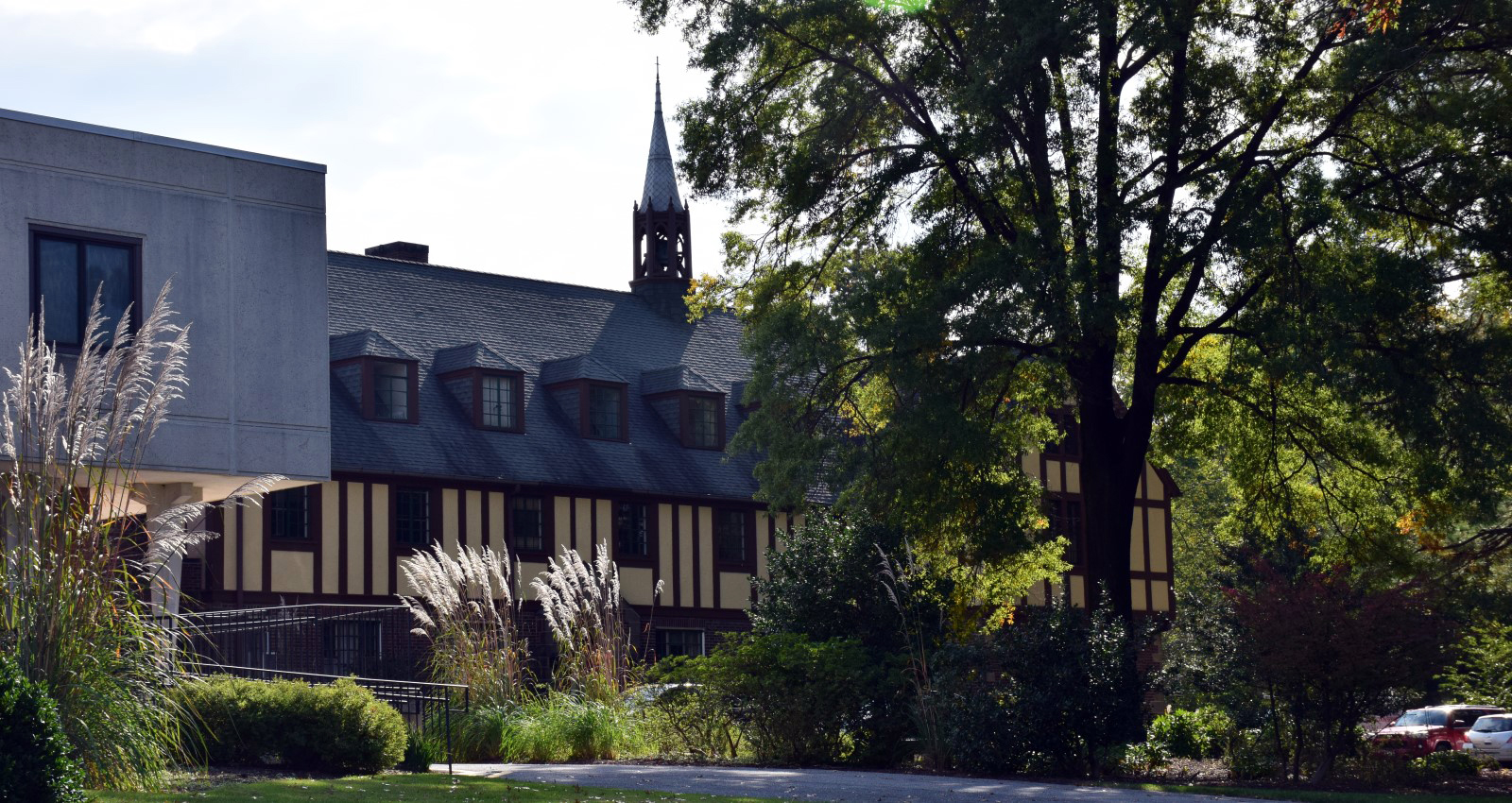
1. Guest
The first step is to become acquainted with one or several communities by staying and sharing their life for a time as a guest. If one monastery seems more suitable or congenial than others, then it is right to go back and spend more time there.
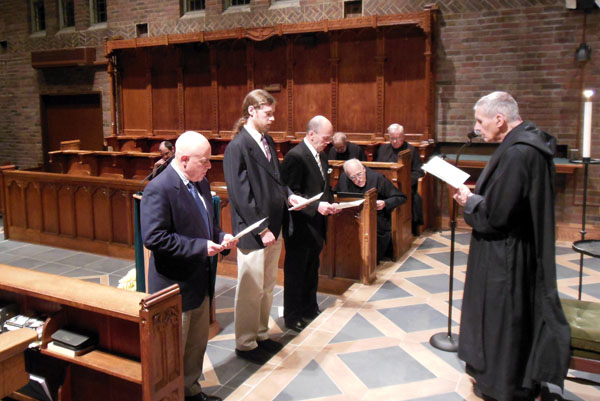
2. Postulant
After several stays as a guest, a person may ask to become a postulant, a stage which usually lasts several months.
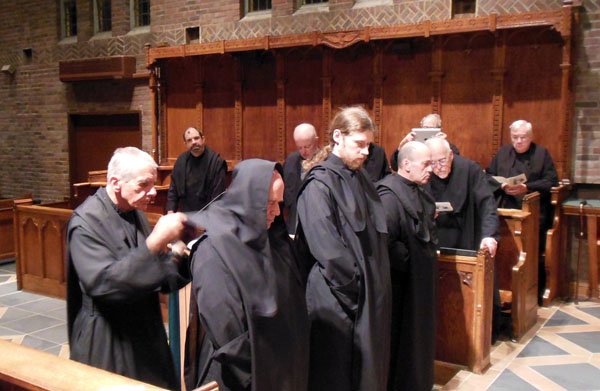
3. Novice
If this is seen by the abbot or prior and his council to have worked out, and the candidate wishes to continue, then he embarks on a one year period as a novice. As a novice, he will be under the direction of a spiritual father who will guide him in his monastic formation.
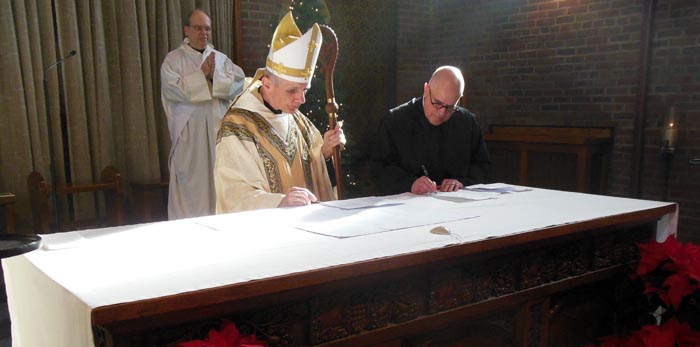
4. Simple Profession
The novitiate year ends with simple profession for three years.
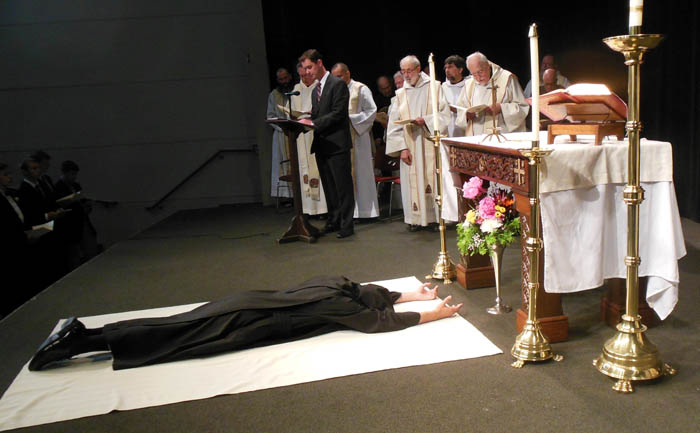
5. Solemn Profession
After three years, or longer if necessary, in simple (or temporary) vows, a monk is free to make his solemn profession, for life.
What are the vows taken by a Benedictine monk?
At his profession a monk promises three things:
OBEDIENCE to his Superior and his successors.
STABILITY to the monastery of his profession.
CONVERSION OF LIFE – a promise to remain faithful until death to the process of personal integration, of real openness to ongoing transformation by the Holy Spirit.
How can someone stay in one place for his whole life?
Monastic profession is like joining a family. This is your community. It’s where you belong. The vow of stability does not prevent a monk from living elsewhere for a time for some good reason, such as study or work. Stability today is counter-cultural. We expect to travel, change our place of residence and even “reinvent ourselves”. The stability of a particular community over many years is a statement which can encourage other Christians to be faithful to their own vocation.
What does obedience entail?
The relationship between a monk and his abbot is not a military one, but human and spiritual. That is to say that both abbot and monk seek to understand each other in the light of the Holy Spirit, to know something of the other’s inner reality. Decisions are made within a process of discernment and dialogue. Ultimately the monk accepts the abbot’s decision as the command of Christ.
What about poverty and chastity?
These are indeed part of a monk’s profession, though not explicitly so. St Benedict has much to say about poverty in the Rule. A monk should have all that he needs for his life and work – clothes, books, furniture, pictures, computer or whatever. But they are all the common property of the monastery. This gives monks both a freedom and a certain interdependence. A monk is called, not just to chastity, as all Christians are, but to celibacy. This is a discipline or acquired virtue by which a man’s sexuality is channeled into a loving awareness of God and neighbor. Typically it flourishes where there are warm friendships, some of them close.
